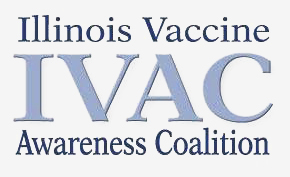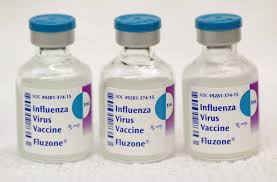TITLE 77: PUBLIC HEALTH
CHAPTER I: DEPARTMENT OF PUBLIC HEALTH
SUBCHAPTER u: MISCELLANEOUS PROGRAMS AND SERVICES
PART 956 HEALTH CARE EMPLOYEE VACCINATION CODE
SECTION 956.30 INFLUENZA VACCINATION
Section 956.30 Infl Vaccinationuenza
Beginning with the 2010 to 2011 influenza season, each health care setting shall ensure that all health care employees are provided education on influenza and are offered the opportunity to receive seasonal, novel and pandemic influenza vaccine, in accordance with this Section, during the influenza season (between September 1 and March 1 of each year), unless the vaccine is unavailable (see subsection (e)).
- a) Each health care setting shall notify all health care employees of the influenza vaccination provisions of this Part and shall provide or arrange for vaccination of all health care employees who accept the offer of vaccination. Each health care setting shall provide all health care employees with education about the benefits of influenza vaccine and potential consequences of influenza illness. Information provided shall include the epidemiology, modes of transmission, diagnosis, treatment and non-vaccine infection control strategies.
- b) Each health care setting shall develop and implement a program that includes the following:
1) A plan to offer seasonal, pandemic or any other influenza vaccine;
2) The time frame within which health care employees will be offered vaccination; and
3) Any required documentation relating to the health care employee vaccination requirement of this Part.
- c) Declination of Vaccine
1) Health care employees may decline to accept the offer of vaccination for reasons including the following:
- A) The vaccine is medically contraindicated, which means that administration of influenza vaccine to that person would likely be detrimental to the person’s health;
- B) Vaccination is against the person’s religious beliefs;
- C) The person has already been vaccinated; or
- D) For any other reasons documented by the person as the basis of the refusal.
2) Health care employees who decline vaccination for any reason indicated in subsection (c)(1) shall sign a statement declining vaccination and certifying that he or she received education about the benefits of influenza vaccine.
- d) Unavailability of Vaccine. A health care setting shall not be required to offer influenza vaccination when the vaccine is unavailable for purchase, shipment or administration by a third party, or when complying with an order of the Department that restricts the use of the vaccine. A health care setting shall offer to provide or arrange for influenza vaccination for health care employees as soon as the vaccine becomes available.
- e) Documentation
1) Each health care setting shall maintain a system to track the offer of vaccination to health care employees. The system shall include documentation that each person either accepted the offer or declined the offer by signing a declination statement pursuant to subsection (c)(2).
2) If a health care setting is unable to provide or arrange for influenza vaccination for health care employees who wish to be vaccinated, the reasons why the vaccination could not be provided or arranged for shall be documented.
3) Individual declination statements should be handled in a manner that ensures individual confidentiality.
4) Documentation shall be maintained for at least three years.
- f) Health care settings may choose to develop and implement more stringent influenza vaccination policies, strategies or programs designed to improve health care employee vaccination rates than those required by this Part and that are consistent with existing law and regulation.

